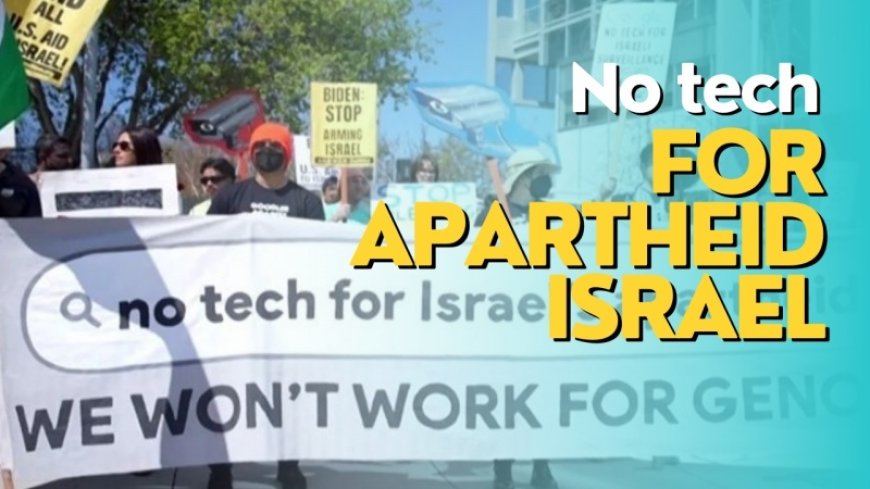Over 120 U.S. Universities Boycott Google and Amazon Over Israel Ties

In a significant move, students from more than 120 American universities have signed a pledge to boycott employment and internships at Google and Amazon until the tech giants cease their involvement in the "Nimbus" project, a controversial partnership with the Israeli government and military.
The Nimbus project, initiated in 2021, is a $1.2 billion contract to provide cloud computing services to the Israeli Defense Forces and government agencies. Critics argue that this technology facilitates illegal surveillance of Palestinians, aids in the expansion of Israeli settlements in occupied territories, and exacerbates human rights abuses.
The pledge, reported by Al-Arabi Al-Jadeed, has garnered over 1,100 signatures from students and young professionals in STEM fields from universities including Stanford, UC Berkeley, and the University of San Francisco. These individuals have committed to rejecting job offers and training opportunities at Google and Amazon until the companies withdraw from the Nimbus project.
Recent protests outside Google's headquarters in San Francisco saw participation from many of these students, alongside technicians and pro-Palestinian activists, highlighting the growing campus movement against tech industry complicity in alleged human rights violations.
Google and Amazon are highly sought after by graduates in science, technology, engineering, and mathematics. UC Berkeley alone has over 485 alumni working at Google, while 216 Stanford graduates are employed there. The boycott is part of a larger campaign, "No Tech for Apartheid," which emerged following the Israeli military actions in Gaza and aims to support Palestinian rights.
The student pledge states, "Palestinians suffer greatly from Israeli surveillance and violence, which is enabled by enhanced cloud services and the provision of cutting-edge technologies by Amazon and Google to the Israeli regime and military. These companies have thus contributed to escalating violence against Palestinians."
This boycott underscores a significant ethical stand within academic and professional communities against perceived complicity in international human rights violations. The campaign continues to gain momentum as it draws attention to the role of technology in global conflicts and the responsibilities of tech corporations in upholding human rights.













































